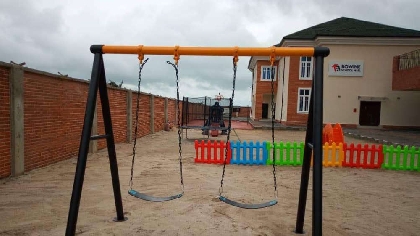
There was a time when Nigerian children spent their afternoons playing suwe, ten-ten, and boju-boju in the streets.
Today, those streets are empty. Playgrounds are disappearing, and children are locked indoors - glued to screens or buried in homework.
Has childhood been stolen?
Studies show that children today spend 70% less time outdoors than their parents did. Instead of running around, they are sitting - on phones, on couches, or in classrooms overloaded with assignments.
“My son barely plays,” says Mrs. Amaka, a mother of three in Abuja. "It's school, lesson, and then TV. "There is no time for childhood."
The effects are alarming. Doctors keep reporting the rising cases of childhood obesity, anxiety, and social isolation. Experts warn that lack of play stunts creativity, weakens problem-solving skills, and increases stress. Schools are cutting recess, parents fear insecurity, and technology has replaced real-world fun.
Yet, some communities are fighting back. Some Lagos schools have reintroduced mandatory playtime, and a few estates are creating child-friendly spaces. But is it enough?
If we don’t bring back free play, we risk raising a generation that excels in exams but struggles in life. The question is, will we let Nigerian childhood fade away, or will we fight to bring it back?


